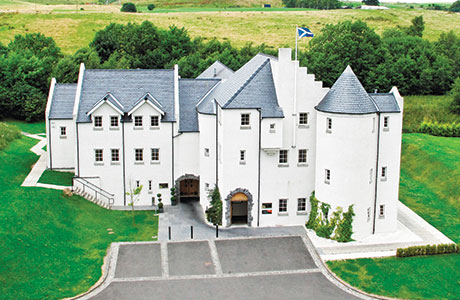There is a greater willingness to lend to trade projects, writes chartered accountant Ian McDougall

THE Scottish economy appears to be going from strength to strength and at long last wage increases seem to be edging above inflation for the first time since the recession began.
This should mean a few extra pounds in peoples’ pockets, a percentage of which will hopefully be spent in the licensed trade.
Seeing this glimmer of light, business owners are asking ‘is now the right time to start investing in improving the business by acquiring new premises or refurbishing and improving what we have?’
Only your experience and knowledge of the market will tell you if the opportunity is right, but if the decision is taken to proceed with funding and the proposal has been fully costed then the operator should ideally prepare the following:
• a set of detailed management accounts to understand your present financial position
• a set of financial projections that demonstrate that any additional borrowing can be repaid
• a basic business plan that highlights the strengths of the current team, the current business and why the opportunity is simply too good for a lender to miss. Be positive but realistic.

The purpose of the above process is twofold: it should convince the operator that the proposal is sound and it should convince the funder that the project has a strong chance of being successful.
Funding has become difficult to obtain over the last few years and operators will find that they are jostling amongst stiff competition when trying to raise finance; it may make sense to get some professional advice to assist you in preparing the above information.
There are a number of funding options to consider:
• bank funding – historically this would probably have been an operator’s first port of call for the majority of funding proposals but due to the banking crisis and the banks’ perception of risk they fell out of love with the sector. However, if you have a good relationship with your bank, your business is strong and profitable and your acquisition or refurbishment is a sound proposition then your bank should still be willing to lend to you. The costs of borrowing should be reasonable and arrangement fees should not be higher than 1.5%.
There are a number of funding options available for operators to consider.
• brewery funding – this was historically a common source of funding in the licensed trade prior to the days of the banks lending with ease. The breweries in general had a strong understanding of the marketplace and, prior to the growth of the pubcos, they were very keen to secure sales by tying in independent operators. Their lending presence diminished as this type of funding seemed expensive as the cost of borrowing dropped, but when the banks reduced lending they have re-emerged as a real solution to funding a business or a refurbishment. Borrowing costs should be realistic but you will be tied in to a supply contract and that will invariably affect your gross margins for many of your products.
• alternative finance – due to the reluctance of the banks to lend, many types of alternative finance have popped up, from payday loans to crowdfunding, with some more welcome than others. One of the most prevalent crowdfunding platforms is Funding Circle where members of the public lend money to established businesses. Operators can borrow up to £1 million, although the average loan is significantly lower. The upsides are that you may not only win new lenders but also win new customers who support the business; the downsides are that the loans are typically for a shorter term and more expensive.
There is no doubt that we are still in a difficult funding environment but there is clearly a greater willingness to lend for the right proposal, pitched by the right people at the right time.
• Ian McDougall is the managing director of McDougall Johnstone chartered accountants.























